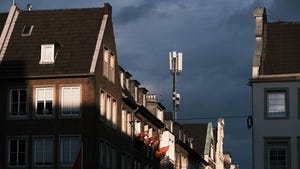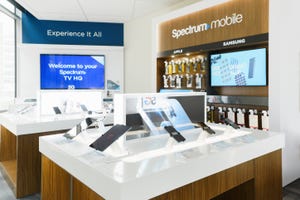Eurobites: VMO2 customers died after digital 'upgrade' compromised their telecare – report
Also in today's EMEA regional roundup: UK introduces new smart-device security rules; e& connects to the cloud with Nokia; who are telecom's European Climate Leaders?
.jpg?width=850&auto=webp&quality=95&format=jpg&disable=upscale)
A Freedom of Information request by the Financial Times has revealed that two Virgin Media O2 customers died last year following the failure of their telecare devices in the wake of an analog-to-digital landline upgrade. The incidents, says the FT report (paywall applies), prompted a meeting between the UK government's Department for Science, Innovation and Technology and Lutz Schüler, VMO2's CEO. For its part, VMO2 said it did not provide the telecare devices in question, and the exact cause of their failure was not specified in the response to the FoI request. Earlier this month VMO2 announced it was restarting its digital switchover program after a three-month pause, but only for those who are not classed as "vulnerable" or using a telecare device such as a pendant.
New laws requiring manufacturers of smart devices such as routers and "connected" fridges to protect consumers from cybercriminals come into force in the UK today, with easily guessable factory-default passwords such as "admin" being effectively banned. An investigation by consumer rights organization Which? found that a typical home bristling with smart devices could be exposed to more than 12,000 hack-attacks in a single week. However, the UK government is planning to exempt certain connected vehicles from this new product security regime, as they will be covered by alternative legislation.
UAE operator e& has chosen to go with Nokia's FP-5-based cloud interconnect platform to provide connectivity services for hyperscalers. The move, says e&, supports the operator's plan to optimize its current network architecture so that it integrates with public clouds while ensuring security and reliability for its customers.
Tele2, Telia and Deutsche Telekom have made it into the top ten of the Financial Times' 500-strong Europe Climate Leaders list. The list focuses primarily on businesses that are deemed to have achieved the greatest reduction in their Scope 1 and 2 greenhouse gas emissions intensity over a five-year period, though other factors are also considered, such as the companies' collaboration with sustainability assessors such as CDP and the Science Based Targets initiative (SBTi).
Telefónica plans to sell the Cisco-cloud-powered Webex Calling service to its enterprise customers in Spain, Peru and Chile. The service enables companies to replace their conventional telephone systems and local switchboards with a cloud-based approach. The operator already offers the App, Meetings and Messaging variants of the Webex collaboration-tool smorgasbord.
The Broadband Forum has released a new version of its Heron open source software for home gateways. According to the Broadband Forum, this freshly hatched Heron reduces the time that it takes for Internet service providers to deploy new services from nine-to-18 months to two-to-four weeks.
Africa Data Centres has introduced a new channel partner program. Among the benefits of signing up is inclusion in ADC Marketplace, a platform intended to allow partners to showcase their services and for potential customers to explore what's available, colocation-wise.
It's not just social media giants and Amazon that need to watch their step when it comes to the European Commission's Digital Services Act: Throwaway fashion specialist Shein has now been designated as a Very Large Online Platform (VLOP) under the terms of the ACT, selling its wares as it does to more than 45 million monthly users in the EU. This means that Shein will have to comply with the most stringent rules under the Act, such as the obligation to adopt specific measures to protect users online, including children, and duly assess and deal with any "systemic risks" stemming from their services.
Read more about:
EuropeAbout the Author(s)
You May Also Like












